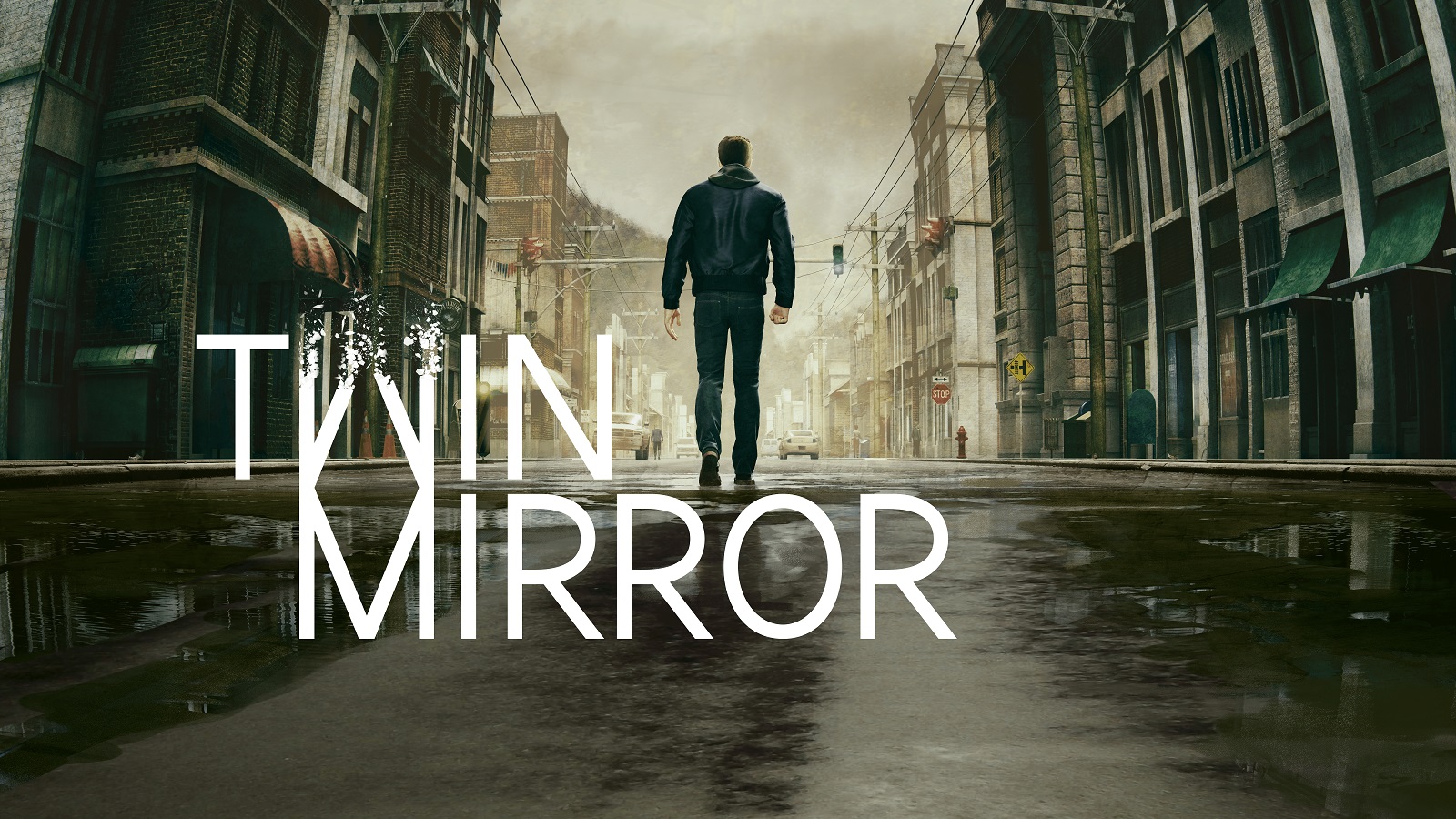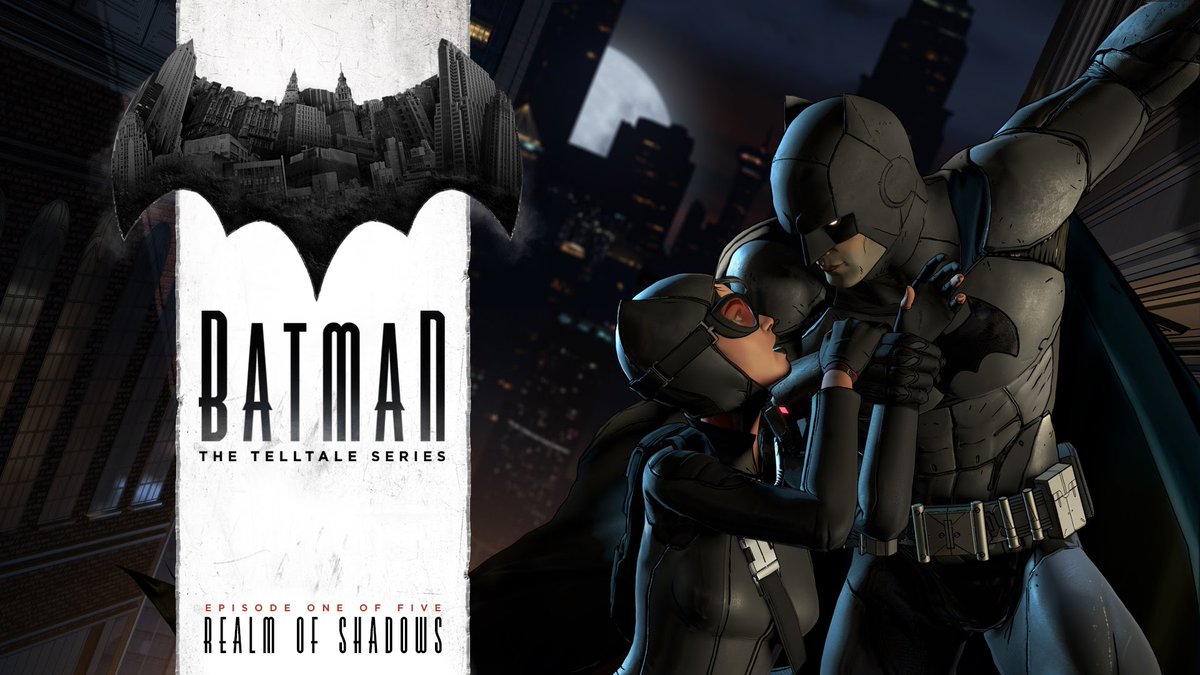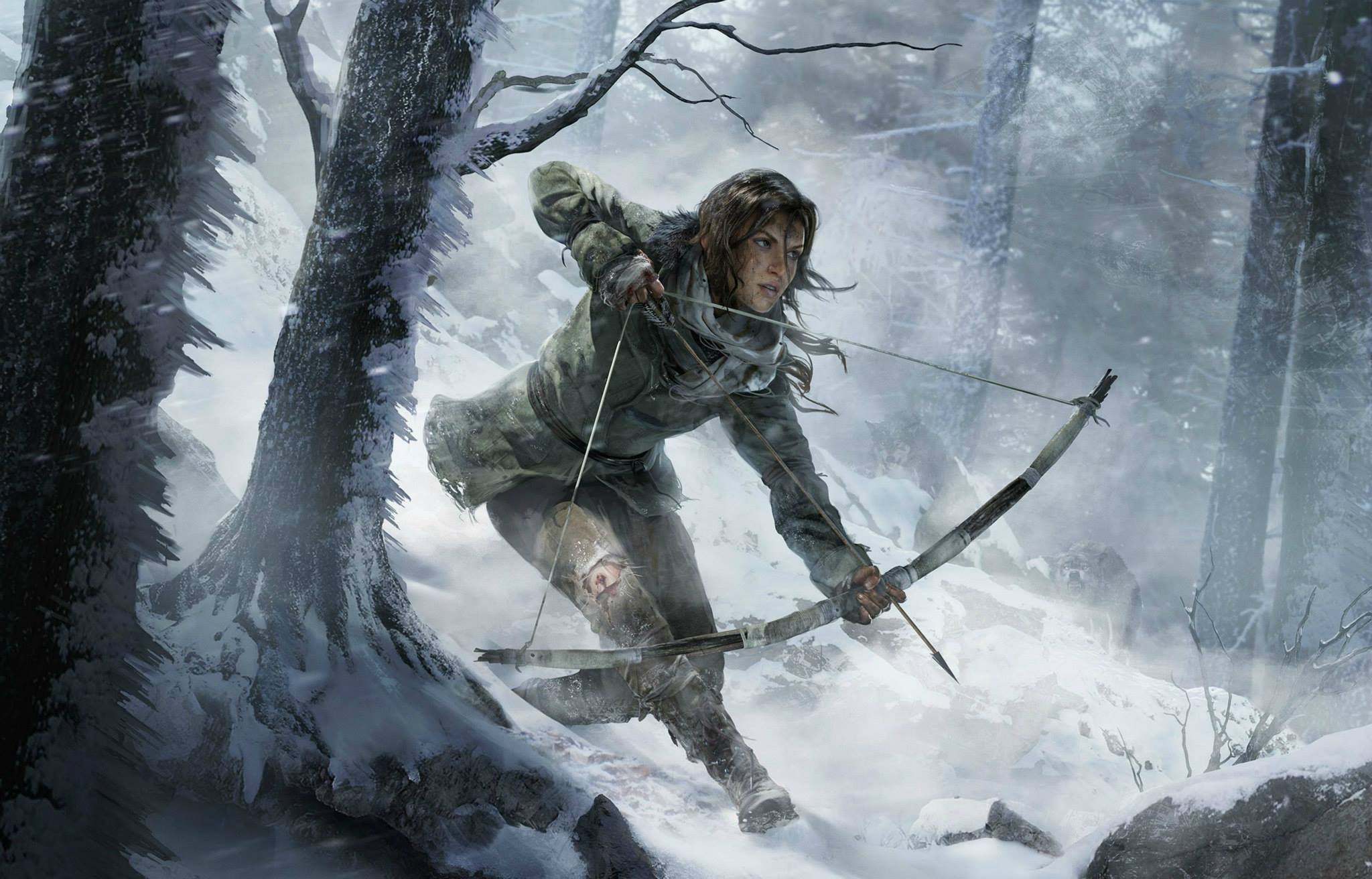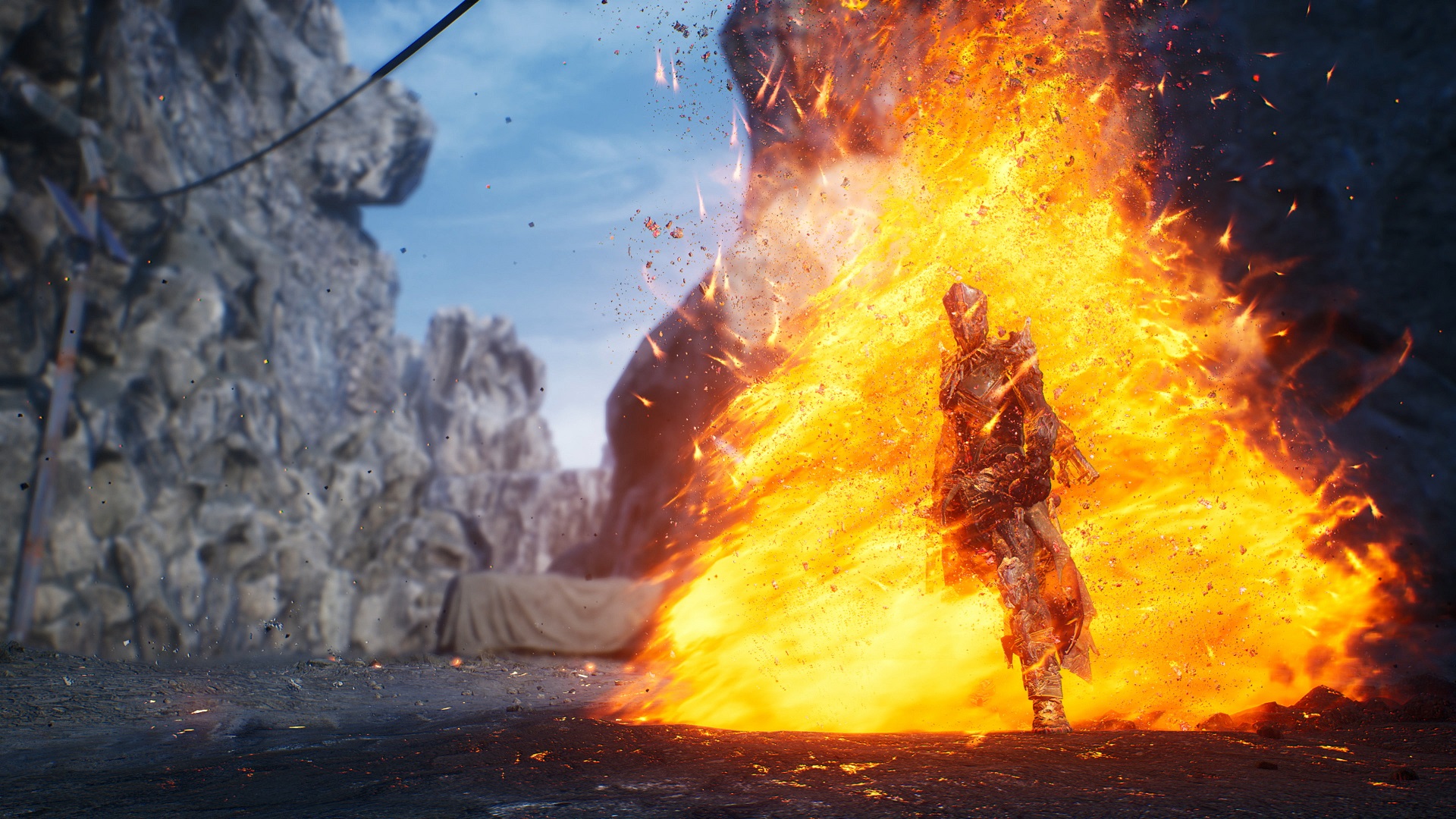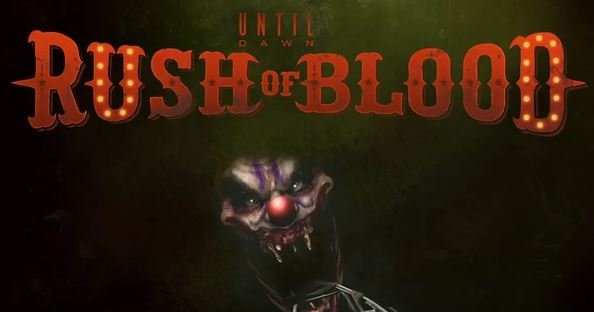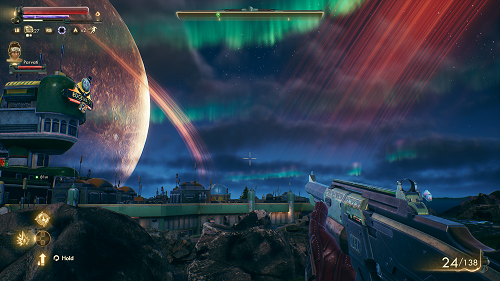
There’s nothing else quite like jumping into a game, creating your own character and shaping your journey with the choices you make. While the level of impact you have waxes and wanes dependent on the game, I’ve always felt a strong affinity to any game that gives me the agency to determine my own destiny; be that through an emergent narrative with no clear structure or a narrative that lets me shape its direction through my choices. While emergent narratives are becoming more plentiful as time progresses, I feel like impactful narrative choice has waned with this generation outside of the many fantastic indie experiences available. This is why Obsidian Entertainment’s RPG The Outer Worlds scratches an itch that I’ve long wanted satisfied.
The Outer Worlds begins as you’re, rather unceremoniously, awoken from cryogenic slumber by a somewhat dishevelled, and clearly goal oriented, figure named Phineas Wells. Quite quickly, you find out that you’re part of a ship full of colonists which the wider Colony believes has been lost in space, but which has instead been deliberately left in cryosleep by its corporate overlords. From here on out, your journey is your own, as your choices determine the outcome of missions, the wider narrative structure of the game, and sometimes even the quests you’ll find. Whether you combat the Corporation, side with your overlords or look to strike middle ground, the choice is there for you to take it. Choice is fantastic, but without an interesting story or clever writing they wouldn’t really matter. Here is where The Outer Worlds truly shines, with incredibly high-quality writing that strikes the perfect balance between black comedy and satire. It isn’t all about humour though, with some genuinely touching moments and fantastic depth given to your party members through their specific companion quest lines. This is especially true of Parvati’s questline, which was easily the highlight of the game for me and left with a warm-hearted feeling of giddy joy.
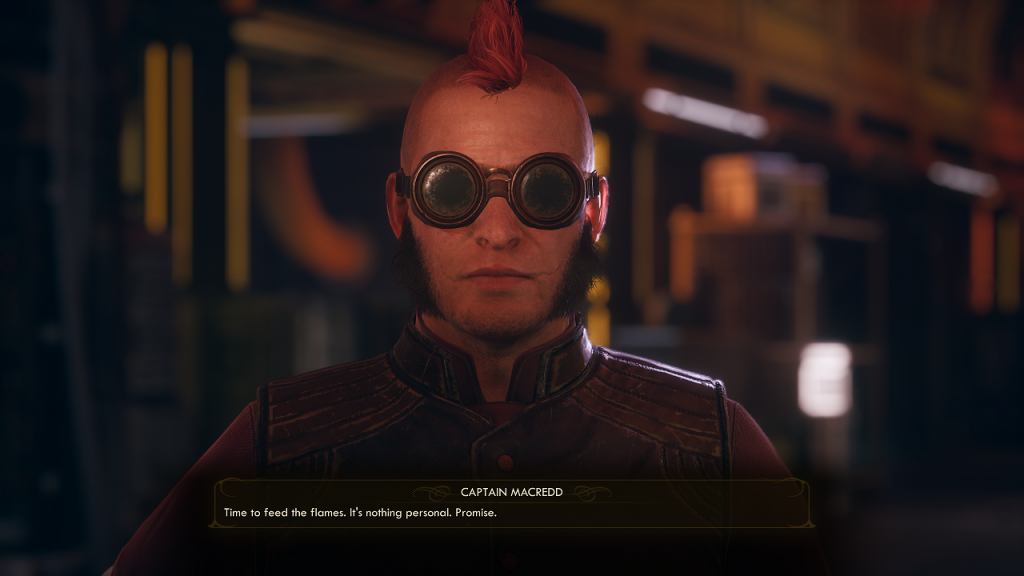
Many of the choices in The Outer Worlds are fuelled by the character you create and the skills and stats you decide to invest in. In my first playthrough of the game I went with a charming gunner, who wandered the Galaxy talking her way out of trouble and gunning down everybody in sight with a minigun when talking failed. Gunning down everybody in sight wasn’t a common occurrence though — except for when wild creatures were involved — as I was able to find a conversation or stealth option in almost every single mission that allowed me to avoid combat. In my second playthrough, I’ve gone with an utter idiot who wanders the Galaxy bashing in heads with melee weapons and refuses to touch guns. While I’m in the same narrative — now complete with ‘dumb’ conversation options— my approach has completely changed, and yet I don’t feel disadvantaged in any way, shape or form. Many games preach about how they’re built to let you play however you like, but few actually feel that way in practice. In The Outer Worlds, I feel like we’re seeing a game where you truly can play however you want — without disadvantage — for the first time in a long while.
However, part of this lack of disadvantage could also stem from one of the few issues I have with The Outer Worlds; save for a difficult initial hour, the game’s combat scenarios are incredibly easy. I could count the number of times I died in the game on one hand, and half of those deaths came because I didn’t pay attention to my health and heal up. There are occasional difficulty spikes, but these are generally mitigated within 10 minutes of entering a new area and finding a new weapon which suddenly makes it feel like you’ve broken the game. This meant that when I did have to get into combat encounters I rarely engaged with the game’s full combat mechanics, because they simply weren’t needed. When you’re laying out 5 enemies in 20 seconds and half a magazine, you don’t really feel the need to slow down time or unleash your companion’s special attacks. If you’re looking for a challenging game, get ready to accept some flaws — which award you extra perk points for taking on weaknesses — and play on the higher difficulties.
What this difficulty level really means though, is that even though The Outer Worlds was billed as a shorter RPG at 20-30 hours, I completed my first playthrough in under 16 hours. By no means did I complete every side quest, but I far from mainlined the game. While this may seem like a bad thing to some, I absolutely love how short The Outer Worlds is. As someone who is often strapped for time to game outside of the games I play for review, shorter experiences are something I truly appreciate. Especially when I still come out the other side satisfied with my experience and feeling like I’ve seen a complete narrative. At 16 hours, I can justify multiple playthroughs using different character archetypes and making different narrative choices as I go. This isn’t something I could say of a game that clocks in at 40+ hours.
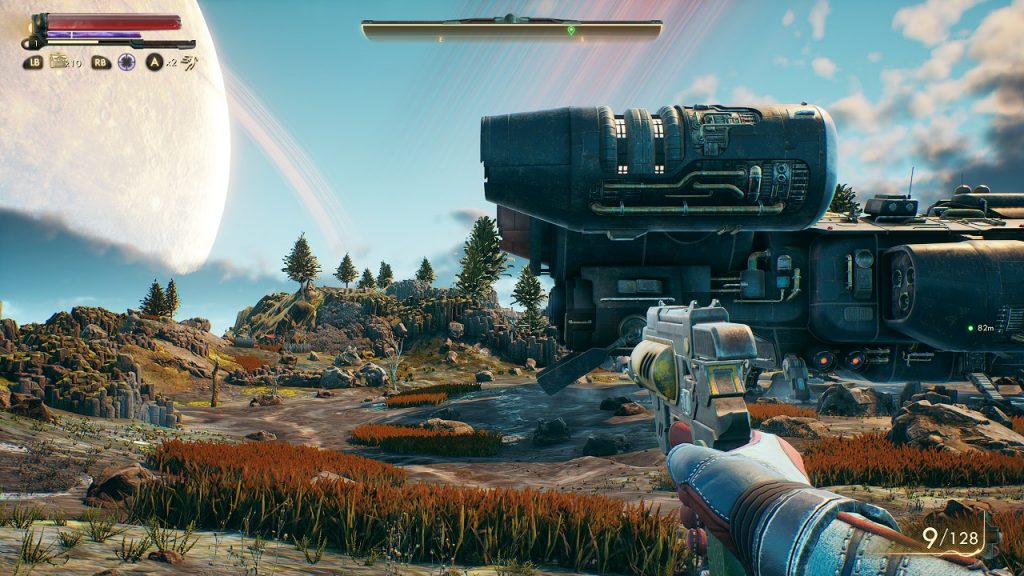
One of the reasons that The Outer Worlds is a shorter RPG experience looks to be due to the game’s relatively limited budget. Billed as an AA experience — with a budget less than games like your Fallouts or Mass Effects — the game makes use of smaller, more contained environments, rather than a big, sprawling open world. This isn’t to say that the environments in The Outer Worlds are small, because they certainly aren’t, but don’t expect to spend an hour walking across a giant landmass. This is far from a bad thing, as the smaller environments allow for a more densely populated world that feels lived in. You’re not wandering for minutes without finding a single soul. Instead, you’ll almost always come across someone, or something, that can be investigated or murdered. The environments also look fantastic, with a fantastically colourful palette that feels alien and beautiful. One frustration with the game, however, is that while the environments are smaller, the loading times when swapping between them can get frustratingly long at points. I also came across plenty of texture pop in and the odd minor glitch, although I didn’t experience anything that really impacted my experience.
The Outer Worlds filled a hole in my gaming soul that I was only somewhat aware remained unfilled. As companies like Bioware have pivoted away from the more narrative focused experiences that I love, nobody else has quite moved in to fill that niche. In The Outer Worlds I found a wonderfully written experience that, through its use of player agency and excellent narrative structure, left me feeling incredibly excited about the future for Obsidian and any potential continuations of the franchise. Minor niggles and an easy difficulty kept it from taking the step to becoming my favourite game I’ve played this year, but by god did it come close. If you have even a passing interest in RPGs, space operas or narrative experiences, then get out there and buy a copy of The Outer Worlds immediately.
Rocket Chainsaw reviewed The Outer Worlds on an Xbox One X. It is available for purchase on PC, PlayStation 4 and Xbox One now, with a Switch version coming in early 2020.
- Player choice is abundant and I never felt disadvantaged by it - Narrative is incredibly well written and engaging - World feels lived in and is interesting - Companions are deep, diverse and well-represented
- Game is much too easy - Load times can be frustratingly long

